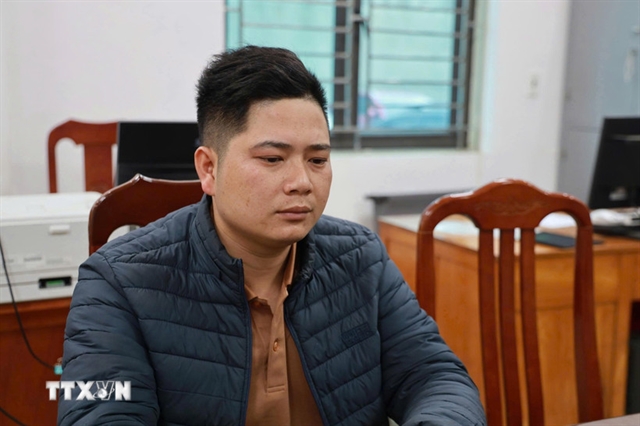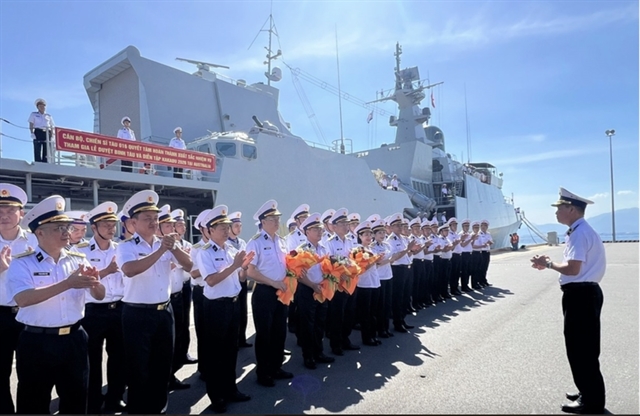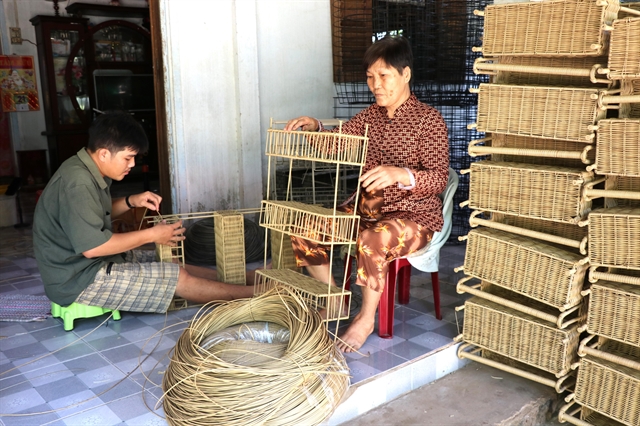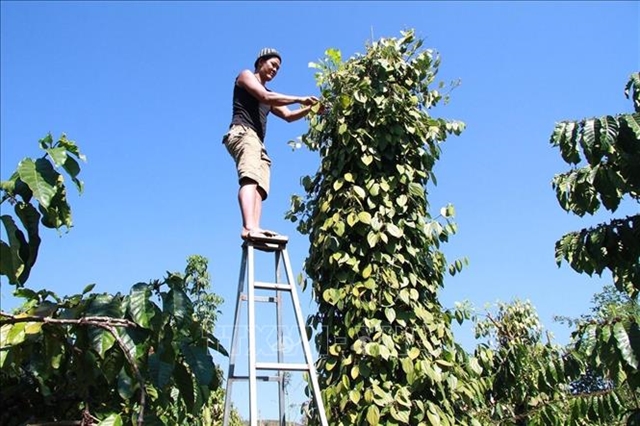 Life & Style
Life & Style

" />Hernia occurs where there is weakness in the abdomen or wall of the stomach. As a result, the internal part of the abdomen can push out from under the skin.
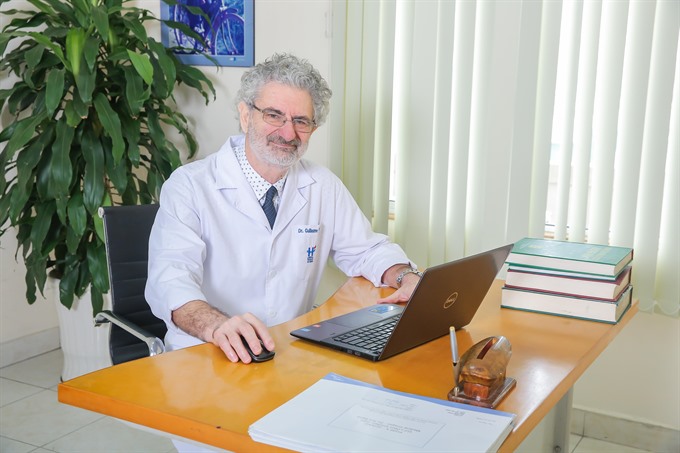 |
| Dr. Bernard Guillaume. — Photos courtesy of Hanoi French Hospital |
by Dr. Bernard Guillaume*
What is hernia?
Hernia occurs where there is weakness in the abdomen or wall of the stomach. As a result, the internal part of the abdomen can push out from under the skin.
Hernia is common among both men and women, (more frequent with men) and can occur at any age. The risk is strangulation of an organ, especially the intestine.
Where does hernia occur and why?
There are several types of hernia. Typical parts where hernia can occur is groin, navel, midline of the stomach and even a scar. Hernia in adults usually occurs due to increased intra-abdominal pressure caused by strain, resulting in a weakness or tear in the abdominal wall. Reasons may be:
Does it require treatment?
Although hernia is not usually a serious condition, surgical closure of the hole in the stomach wall is the only way to treat hernia. If left untreated, hernia can increase in size, strangulating the organs within.
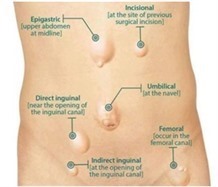 |
What are the symptoms?
You may notice a small soft swelling under the skin in one of the typical areas. Hernia can often appear after strain or just spontaneously, without any specific reason. Most people feel a light sensation of discomfort or pain over the swelling. At first, you can try to push the hernia back through the hole, which goes in with a watery sound. But when the intestine is trapped in the hole, the hernia gets strangulated. This cuts off blood and oxygensupply to the trapped intestine, causing severe pain, nausea, vomiting and absence of bowel movements, indicating acute bowel obstruction. The surgery comes with the risk of having to remove a part of intestine and if the surgery is not performed on time there is a risk of the intestine being removed.
What is the treatment?
The only cure for hernia is surgery and it is always preferable to have it repaired before it becomes an emergency. There are currently two types of surgery available for hernia---open and laparoscopic--- and are one of the most common procedures used by surgeons today.
Open surgery can be done to fix all types of hernias. The procedure is rather simple and consists of suturing the muscles or closing the defect with a reinforcing mesh. It is an easy procedure with a minimal risk of recurrence and damage to intra-abdominal organs. The disadvantages are that the procedure is painful, scarring is more extensive and there is also a risk of wound infection.
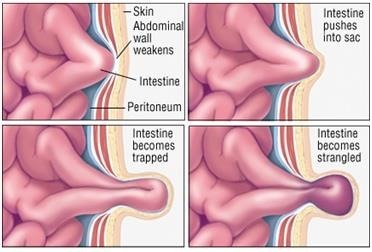 |
Laparoscopic or key-hole surgery is a newer technique that can repair all types of hernias as well. Rather than one large incision, the surgeon makes three tiny cuts, the largest of which is only some 1.5cm in size, through which a mesh is inserted to close the hole. The advantages of this procedure are small scars, faster healing, less pain, extremely low risk of wound infection and reduced risk of recurrence. The surgery is performed close to intra-abdominal organs but with a very low risk of wounding them. The patient can usually resume normal activities within a couple of days. The disadvantages are that it is a difficult procedure that not many surgeons are adept at. Laparoscopic hernia repair is contraindicated in large inguinal-scrotal hernia or in patients who have previously undergone pre-peritoneal surgery, such as prostatectomy and pre-peritoneal hernia repair.
The anaesthesia needed during a hernia surgery depends on the location and technique. It can be either local, spinal or general. Laparoscopic procedures are usually performed under general anaesthesia.
In rare cases, any kind of surgery or anaesthesia may be contraindicated. This may be the case in elderly persons who have other diseases. For such patients, a truss, which is a strong belt holding the hernia in place from the outside, may be indicated. Wearing a truss can be quite uncomfortable which is why they are recommended in rare cases.
At the Hanoi French Hospital, we offer all types of treatment for hernia. Our surgeons have extensive training and expertise in laparoscopic surgery. Laparoscopic procedures are usually done in day-care and patients can return home the same day. Talk to your doctor to learn which treatment option is best for you. — Hanoi French Hospital
*Dr. Bernard Guillaume is a French visceral surgeon with over 30 years of experience in the treatment of diseases of the digestive tract. He has been a pioneer in the development and practice of “keyhole” procedures.
Together with Bui Trung, Vietnamese visceral surgeon, they form the department of Visceral Surgery that has been taking care of local and expatriate customers for the last many decades.
If you have any questions or want to book an appointment with our doctors, please contact us at 84-24.3577.1100 or email us at contact@hfh.com.vn

